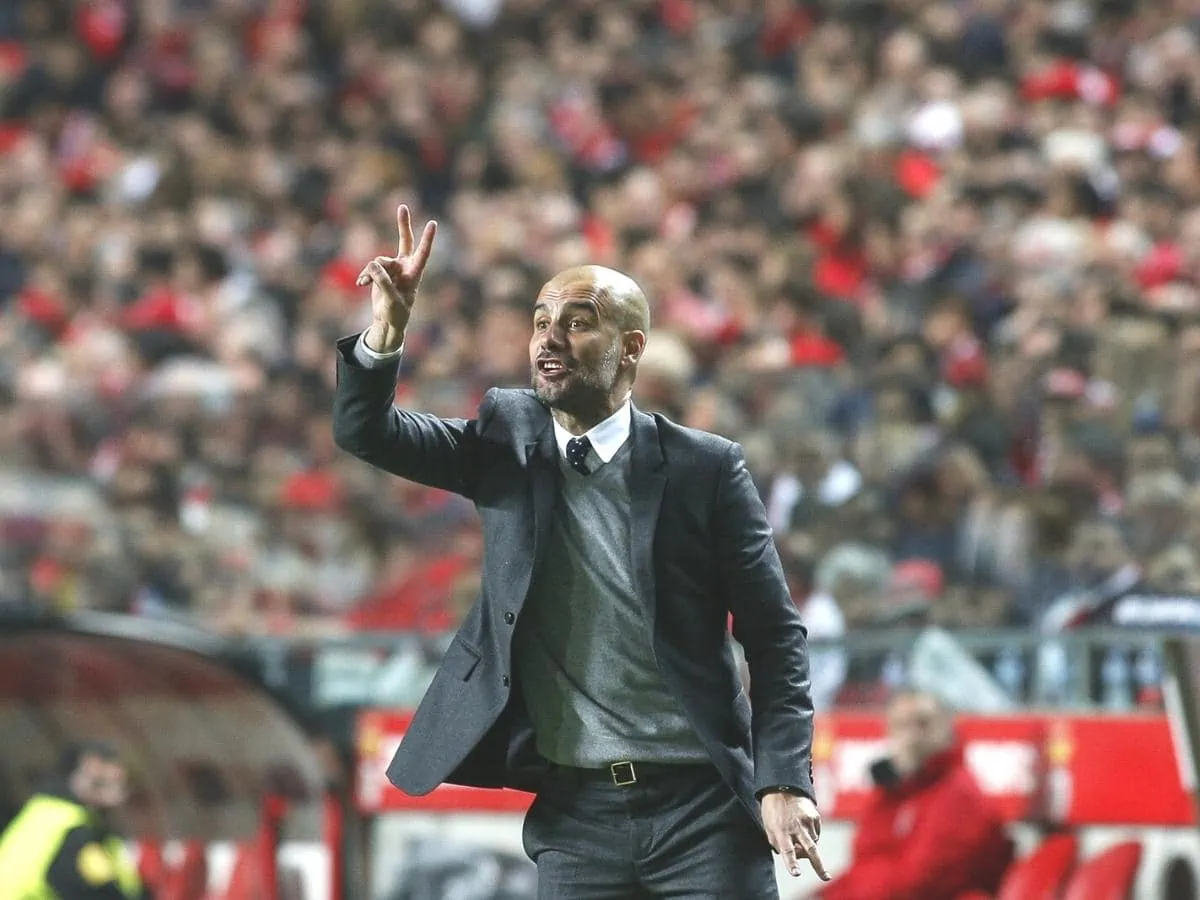Share the post "Soccer Coach or Soccer Manager (Differences)"
Both soccer managers and football managers are the head of their teams. They are responsible for organizing the training, games, and players.
And whenever you notice one of these terms in a sports article, writers don’t distinguish between terms or emphasize any specific meaning. In today’s article, I will discuss soccer/football roles.
Since I already explained that there’s no real difference between a soccer manager and a football manager, I will discuss the differences between soccer managers and coaches, so let’s begin.

Is Soccer Manager The Same As Football Manager?
There’s no real difference between soccer managers and football managers. The soccer or football manager has crucial responsibilities in professional their clubs.
Those responsibilities include but aren’t limited to the following: picking the team of players for matches and their formation, making the strategy, and instructing the team of players on the pitch.
The soccer/football manager also motivates players before and during a match. According to Wikipedia, in association football, a manager is someone responsible for running a national team or a football club.
However, outside the British Isles, the title of coach or head coach is a more commonly used term.
Besides the responsibilities I’ve already mentioned, a soccer manager is also responsible for buying and selling soccer players in the transfer market, including loans, delegating duties to the coaches as well as the medical and coaching staff, scouting for new and talented players, and doing interviews.
Furthermore, depending on the club, a manager is also responsible for advertising the club, especially for sponsorships, ticket admission, and merchandise and growing turnover, and keeping the club profitable. However, usually, managers of smaller clubs have these duties.
Some of the mentioned responsibilities of a manager can be shared with a sporting director or director of football. And sometimes, they’re also handled by a club coach or assistant manager.

European And North American Soccer Managers
In British football, they commonly utilize the term “manager”. And in most other European countries in which professional soccer is played, the person responsible for the direction of a soccer team is called a trainer or coach.
Moreover, the responsibilities of a head coach or soccer manager in Europe tend to be split up in North American professional sports where the soccer teams often have a separate head coach (also known as a field manager in baseball) or general manager.
Sometimes, one person can handle both these roles. And while the first team coach in soccer is usually the assistant to the manager who often has the actual power, the North American-style head coach and general manager have different responsibilities.
For instance, a regular European soccer manager has the last word for in-game choices including player line-ups and off-the-field and roster management choices including contract negotiations.
These choices in North American sports would be handled separately by both the general manager and head coach.

What’s The Difference Between A Manager And A Coach In Soccer?
People utilize the terms soccer manager and soccer manager interchangeably. And that’s fine because there’s not an actual difference between the two.
However, they also utilize the terms soccer manager and coach interchangeably. Now, that’s not okay because these terms have different meanings.
For instance, a soccer manager as I already established usually organizes the operation and processes to provide results while a soccer coach helps players become more effective and drives team performance.
Now, let’s explore a little deeper and learn more about the differences between the two roles.
What’s managing?
Managers usually direct team members to ensure the task is finished on time and within budget. They’re task-oriented individuals who’re highly beneficial when a crisis occurs and when you need to accomplish a specific outcome efficiently and quickly.
Overall, managers provide answers and guidance for team members. However, they’re also responsible for a crisis that needs to be resolved on time, onboarding as well as training new team members, making executive decisions, and tracking progress.
They’re also in charge of conducting meetings and meeting deadlines. Managing is very much driven by digits. Therefore, managers must track the team’s progress, provide goals, establish desired results, and take care of the team’s projects, in general.
What’s coaching?
Coaching is something completely different than managing. Managing as I established is all about giving directives, monitoring progress, and assigning tasks while coaching includes exploration, leadership, and evolution. Meaning coaches guide team members to their next level of performance.
Over the past decade, the Harvard Business Review has gathered answers from half a million individuals who have all confirmed what other studies have discovered: effective coaching boosts employee engagement, productivity, and commitment.
Meaning, there’s a clear connection between the coach’s ability to develop and improve team members and the level of those people’s efforts, engagement, and productivity.
The coach can help when someone on the team needs guidance. Coaching also takes care of developing new strategies through collaboration, developing team members, helping team members reach the next level of performance, and planning training sessions.
Overall, coaching equals developing. And when you have a whole team of skilled players, your main duty as a coach is to help develop these players into independent individuals who think independently as well as execute without asking for permission.

How To Become A Top Soccer Manager
Becoming the manager of a professional football/soccer club is hard, time-consuming, and costly. However, if you love the game, it’s worth it! To start, you will need some experience as a player.
So, join a rec or youth league to learn the game from a soccer player’s perspective, then get certified as a youth coach. Once you do that, volunteer at your youth league or local park district as a manager.
Then, work your way up to a lower-level management position until you finally land ahead management position. With enough patience, dedication, and hard work, you can accomplish your goals one day.
The next guide can help you learn how to become a pro football/soccer manager slowly but surely.
Step 1: Study the soccer management game
You can learn the game by playing the game and gathering experience. Otherwise, it’s hard to land even a volunteer coaching spot.
You can sign up for a semi-competitive league at your field house or local park district. You can also gain some experience with a rec league. Therefore, just enlist a couple of friends to make a team for outdoor or indoor league and start playing.
Moreover, read the professional rules to play the game exactly. FIFA manages the international rules for football. So, find the official rulebook online and start reading. Additionally, watch soccer regularly and sturdy the decisions of managers.
The next step is getting a college degree in sports management, of course, if you’re still in school. And if you still haven’t graduated college, obtain an undergraduate degree. That way, you will get a head start in the certification process.
Step 2: Become certified as a manager
The certification process for managers and coaches differs depending on where you live. Every soccer league has its certification process. And it’s almost impossible to become a professional soccer coach without getting certified, so go online to learn more about the certification process.
Then, sign up for a level 1 to start the certification process, meet the course requirements, get your field experience, and volunteer to manage youth teams after you get your level 1 certification. In the next 2-5 years, gather some extra certifications that will help you land ahead management position.
Step 3: Work your way up to head manager
Finally, apply for a college, high school, or amateur manager position.
Make sure you have all the needed certifications before applying to these spots by calling the league or school and learning what they need.
Then, get in touch with teams in minor leagues to work your way up to a professional club.
Wrap Up
As I already explained, there’s no real difference between a soccer manager and a soccer manager.
However, there’s a clear difference between soccer managers and coaches. Hopefully, you’ve learned more about these roles in this article. If you find it valuable, share it with other people online.
Share the post "Soccer Coach or Soccer Manager (Differences)"
Joel is a seasoned soccer journalist and analyst with many years of experience in the field. Joel specializes in game analysis, player profiles, transfer news, and has a keen eye for the tactical nuances of the game. He played at various levels in the game and coached teams - he is happy to share his insight with you.



